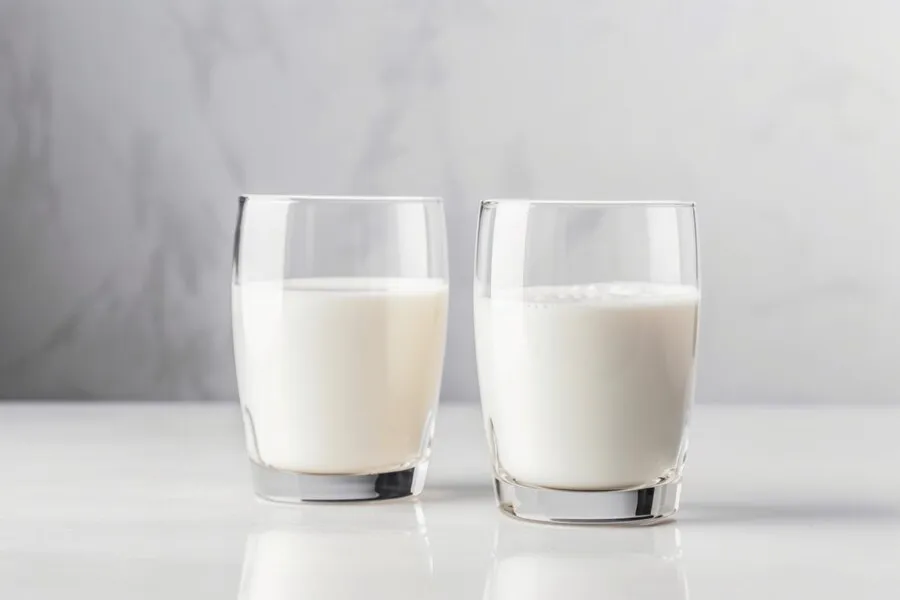Marine Collagen or Bovine Collagen? Pros and Cons Explained

Marine Collagen or Bovine Collagen? – Collagen is more than just a beauty buzzword; it’s a key protein that plays a vital role in maintaining the health and vitality of our skin, joints, bones, and more. As consumers grow increasingly health-conscious, collagen supplements have skyrocketed in popularity, with two main contenders dominating the market: marine collagen and bovine collagen. But which one is right for you? Whether you’re looking for the best collagen for glowing skin or strong joints, understanding the pros and cons of marine collagen compared to bovine collagen can help you make an informed decision. So, let’s dive into the marine collagen or bovine collagen debate and uncover which one suits your lifestyle and wellness goals.
What is Marine Collagen?
Marine collagen is derived from the skin and scales of fish, particularly cold-water species like cod, haddock, and snapper. This type of collagen is known for its high bioavailability, meaning it’s absorbed more quickly and efficiently by the body compared to other forms of collagen. Marine collagen primarily consists of Type I collagen, which is renowned for promoting healthy skin, hair, nails, and bones.
Related Keyword About Marine Collagen or Bovine Collagen: Understanding Bovine Collagen as a Supporting Component in Beauty Drinks
Pros of Marine Collagen:
- Higher Bioavailability: Marine collagen boasts smaller peptide sizes, allowing for faster absorption into the bloodstream. This makes it a top choice for those looking to see quick results in their skin and overall appearance.
- Rich in Type I Collagen: If your primary goal is to improve skin elasticity, hydration, and fight signs of aging, marine collagen might be your go-to. Type I collagen is the most abundant collagen in the human body, making it essential for healthy, youthful-looking skin.
- Sustainability Factor: Derived from fish byproducts, marine collagen is often considered more eco-friendly and sustainable than bovine collagen, which involves livestock farming.
- Less Likely to Cause Inflammation: Marine collagen is generally hypoallergenic, making it a safer option for those with food sensitivities or allergies to meat-based products.
Cons of Marine Collagen:
- Cost: Marine collagen tends to be more expensive than bovine collagen due to the sourcing process and the limited availability of high-quality fish.
- Not Ideal for Joint Health: While marine collagen is great for skin, it’s not as effective as bovine collagen when it comes to improving joint health, as it lacks the specific types of collagen (Type II) needed for cartilage support.
- Taste and Smell: Some users report a fishy aftertaste or smell, which may be a deterrent for those who are sensitive to seafood flavors.
What is Bovine Collagen?
Bovine collagen, on the other hand, is derived from the hides, bones, and cartilage of cows. It contains a mixture of both Type I and Type III collagen, making it a versatile option for supporting not only skin health but also joint, gut, and bone health. It’s widely used in collagen supplements and is praised for its affordability and effectiveness.
Related Keyword About Marine Collagen or Bovine Collagen: 5 Marine Collagen Benefits and How It Is Different to Others
Pros of Bovine Collagen:
- Affordable: One of the biggest advantages of bovine collagen is its cost-effectiveness. It is generally more affordable than marine collagen, making it accessible for a wider range of consumers.
- Great for Joint and Bone Health: Bovine collagen contains both Type I and Type III collagen, which are essential for maintaining healthy joints, bones, and muscles. For athletes or those with joint discomfort, bovine collagen can provide relief and enhance mobility.
- Versatile Applications: Bovine collagen is a more general-use supplement, making it a great choice for anyone looking to improve overall health, including skin, gut, and joint health.
- Neutral Taste: Unlike marine collagen, bovine collagen typically has a more neutral flavor and odor, which makes it easier to incorporate into drinks or foods without altering the taste.
Cons of Bovine Collagen:
- Lower Bioavailability: Compared to marine collagen, bovine collagen has larger peptides, which means it may take longer for your body to absorb and experience results.
- Not Suitable for Everyone: Those following a pescatarian or vegetarian diet may not be able to consume bovine collagen, making it less inclusive as a supplement.
- Allergy Risk: People with allergies to meat-based products or with autoimmune conditions that react to animal proteins might find bovine collagen problematic.
Marine Collagen or Bovine Collagen: Which is Better?
When it comes to marine collagen or bovine collagen, it really depends on your health goals and personal preferences. Let’s break it down further to help you decide:
- For Skin Health: If your focus is on improving skin elasticity, hydration, and reducing the appearance of wrinkles, marine collagen is the clear winner due to its high concentration of Type I collagen.
- For Joint Health: If you’re an athlete or someone struggling with joint pain or mobility issues, bovine collagen is the better choice because of its Type III collagen content, which supports cartilage and joint function.
- For Digestibility and Absorption: Marine collagen is absorbed faster and more efficiently, making it a better option if you’re looking for quicker results.
- For Sustainability: Those who prioritize eco-friendly products may lean towards marine collagen, as it often comes from fish byproducts, reducing waste.
- For Cost: If budget is a significant concern, bovine collagen offers similar benefits to marine collagen at a more affordable price point.
Related Keyword About Marine Collagen or Bovine Collagen: Collagen vs Glutathione: Which One Brightens Your Skin Better?
Scientific Backing: What Does Research Say?
Numerous studies have explored the benefits of both marine and bovine collagen. Research indicates that marine collagen, with its smaller peptide size, is absorbed up to 1.5 times more efficiently than other types of collagen, particularly for skin health. Meanwhile, studies focusing on bovine collagen have highlighted its ability to support joint health, especially in individuals with osteoarthritis or joint pain due to aging.
Related Article about Marine Collagen or Bovine Collagen: Get to Know Marine Collagen as One of the Raw Materials for Beauty Drinks
In one clinical study, participants who supplemented with bovine collagen experienced significant improvements in joint mobility and pain relief over the course of 12 weeks. On the other hand, marine collagen has been shown to improve skin elasticity and hydration levels in as little as 8 weeks of consistent use.
Marine Collagen vs Bovine Collagen: Sustainability and Ethical Considerations
When it comes to sustainability, marine collagen is often viewed as the more eco-friendly option. Many marine collagen supplements are derived from fish skin and scales, which are byproducts of the seafood industry. This helps reduce waste and makes use of parts of the fish that would otherwise be discarded.
However, the environmental impact of marine collagen largely depends on the sourcing practices. If marine collagen is sourced from unsustainable fisheries, it can contribute to overfishing and the depletion of marine ecosystems.
You May Also Like: Marine Collagen or Bovine Collagen
Bovine collagen, on the other hand, relies on cattle farming, which has a much larger carbon footprint. Livestock farming is associated with greenhouse gas emissions and deforestation, especially in regions where cattle farming is rampant. For consumers concerned with sustainability, choosing marine collagen from sustainably sourced fisheries or grass-fed bovine collagen from ethical farms can make a difference.
Bottom Line
At the end of the day, choosing between marine collagen or bovine collagen boils down to your specific health needs and values. If you’re seeking faster absorption and skin benefits, marine collagen is an excellent choice. But if you’re after a more affordable, versatile supplement for joint, gut, and overall health, bovine collagen might be the better fit.
Both types of collagen have their pros and cons, but one thing is clear: collagen is a powerful supplement that can significantly enhance your overall health and wellness.
Call to Action
Looking to create premium, high-quality collagen products or other powdered beverages for your business? Putra Farma Yogyakarta is here to help! We are a trusted manufacturer specializing in OEM beverage production, providing businesses with fast, easy, and affordable solutions. Let us take your product from idea to market with our end-to-end services, trusted by hundreds of clients. Get in touch with us today to start your journey toward success!
Tag: Marine Collagen or Bovine Collagen




